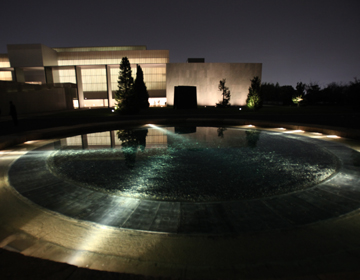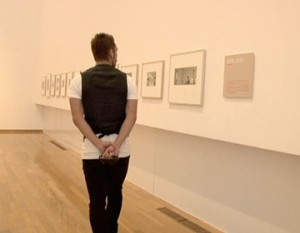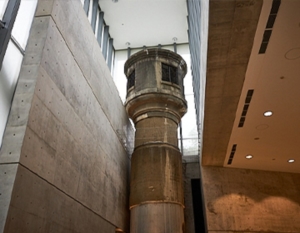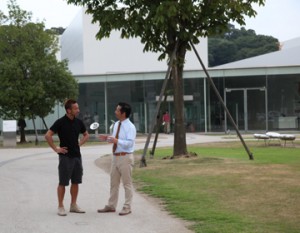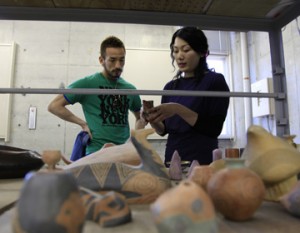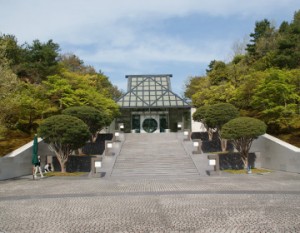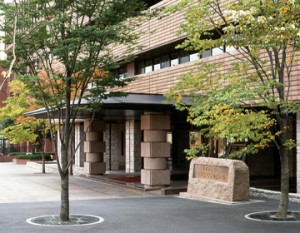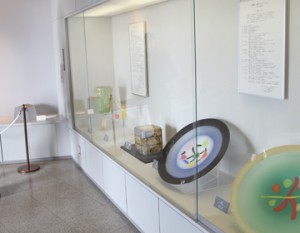Collection of contemporary Japanese art
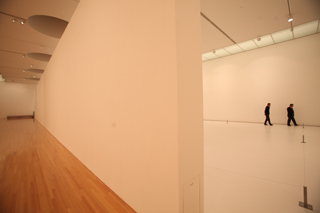
In the center of the city of Toyota, on an elevated area where Koromo Castle once stood, is the ”Toyota Municipal Museum of Art” with a collection centered on modern and contemporary works of art. The building is by the architect Yoshio Taniguchi, who is known for having designed the Tokyo Sea Life Park and the new building of the Museum of Modern Art in New York. On the grounds to the west of the museum, there is a Japanese garden with a restored turret from Koromo Castle and a tea house. From the terrace to the east, there is a view over the ”city of cars, Toyota”. Its collection covers almost all the art movements of the 20th century, and includes paintings by Egon Schiele, Gustav Klimt and Salvador Dali, paintings of Japanese artists such as Ryusei Kishida and Tsuguharu Foujita, and other art pieces.
One of the reasons the museum has continued to be the focus of attention since its opening in 1995, is its collection of Japanese contemporary art. It is difficult for contemporary art pieces to receive unanimous approval, so larger museums tend to be reluctant about including them in their collections. ”Toyota Municipal Museum of Art” plays an important role in the development of Japanese contemporary art.
Numerous works in the ”Setsuro Takahashi Gallery”
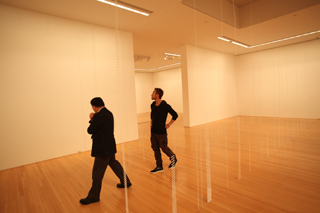
While looking at the displayed work, Nakata paused for a long time at a certain exhibition. It was the exhibition of lacquer artist Setsuro Takahashi. Nakata developed a great interest in lacquer through his travels throughout Japan where he encountered many works of traditional ”kogei” and art. In the ”Setsuro Takahashi Gallery” adjacent to the museum, Nakata saw ink and water color paintings, lacquer prints, and musical instruments such as a piano, harp and flute with embellishments of silver and gold, which led him to uncover a new fascination in lacquer.
The landscape of the museum, as well as the collection, is a fusion of history and contemporary culture. It is a place where one can come and face the works of art, as if standing on the boundary between the past and future.



